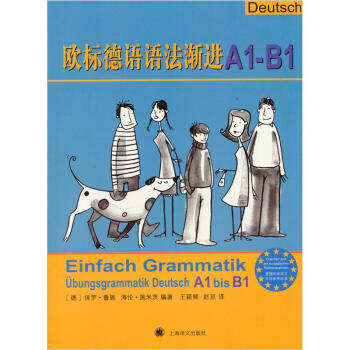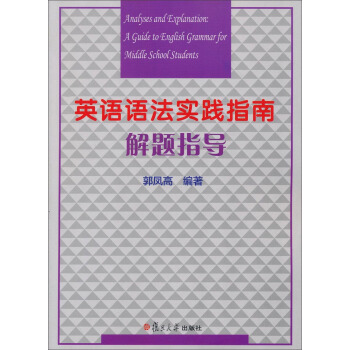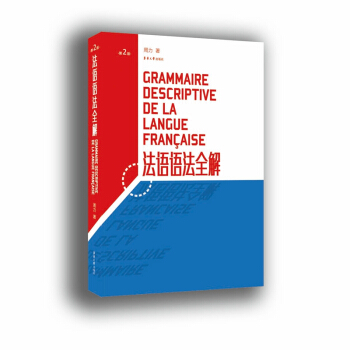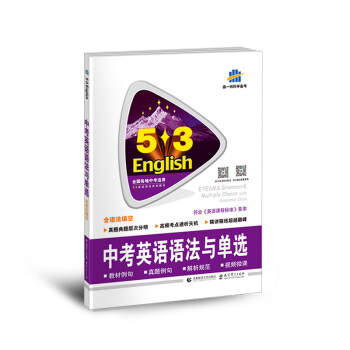![牛津英文經典:沉思錄(英文版) [Meditations]](https://pic.tinynews.org/11894379/56f50fa5Ne75c10a8.jpg)

具体描述
編輯推薦
牛津大學齣版百年旗艦産品,英文版本原汁原味呈現,資深編輯專為閱讀進階定製,文學評論名傢妙趣橫生解讀。內容簡介
《沉思錄》是古羅馬帝國皇帝瑪剋斯·奧勒留在鞍馬勞頓中所記錄的與自己心靈的對話。這位一韆八百年前的曠代奇人在書中闡述瞭靈魂與死亡的關係,解析瞭個人的德行、個人對社會的責任以及對為人處世律己待人之道等諸多人生哲理的領悟。該書不僅是古羅馬斯多亞派哲學的裏程碑,而且對今人的思想及生活仍有著重要的指導意義,可以說是人間至寶。作者簡介
瑪剋斯·奧勒留(121—180),古羅馬帝國皇帝。為帝國之治夙興夜寐,為平定兵患而徵戰四方,並*終死於軍中。奧勒留在文學、修辭、哲學、法律、繪畫方麵均受過良好教育,利用政事辛勞當中的片暇記錄與自己的心靈對話,為後世留下不朽的精神財富——《沉思錄》。精彩書評
《沉思錄》有一種不可思議的魅力,它甜美、憂鬱而高貴。這部黃金之書以莊嚴不屈的精神負起做人的重荷,直接幫助人們去過更加美好的生活。 ——費迪曼《一生的讀書計劃》《沉思錄》不是屬於某個宗教的,而是所有宗教的人都可以領略到這本書背後的靈性的層麵。 ——梁文道
目錄
IntroductionNote on the Text
Select Bibliography
A Chronology of Marcus Aurelius
Meditations
Appendix: A Selection from the Correspondence between Marcus Cornelius Fronto and Marcus Aurelius
Explanatory Notes
List of Letters Translated
Index of Themes
精彩書摘
1.From my grandfather* Verus, nobility of character and evenness of temper. 2.From the reputation of my father* and what I remember of him, modesty and manliness. 3.From my mother,* piety and generosity, and to abstain not only from doing wrong but even from contemplating such an act; and the simplicity, too, of her way of life, far removed from that of the rich. 4.From my great-grandfather,* that I never had to attend the public schools, but benefited from good teachers at home, and to have come to realize that this is a matter on which one should spare no expense. 5.From my tutor,* not to have sided with the Greens or the Blues [at the chariot-races] or the gladiators* with the long shields or short ones; to endure hardship, and have few needs; to do things for myself and not meddle in the affairs of others; and to turn a deaf ear to slander. 6.From Diognetus,* not to become obsessed with trivialities, and not to believe the claims of miracle-mongers and charlatans about incantations and the expulsion of demons and the like; not to engage in quail-fighting or become excited over pursuits of that kind; to be willing to tolerate plain speaking; to have become familiar with philosophy, and to have attended the lectures first of Baccheius, and then of Tandasis and Marcianus; to have written compositions as a boy; to have wished for a plank bed covered only with a skin and for everything that formed part of the greek discipline. 7.From Rusticus:* I gained the idea that my character was in need of correction and cultivation; and from him I learned not to write treatises on purely theoretical matters, or deliver little moralizing sermons, or play the ascetic or the benefactor in a manner calculated to impress; to abstain from oratory, and verse, and fine language, and not to walk around the house in ceremonial clothing, or indulge in other such vanities; to write letters in an unaffected style, as he did when he wrote to my mother from Sinuessa; with regard to those who have angered or wronged me, to be easily recalled to my usual frame of mind, and to be easily reconciled as soon as they are willing to make a move in my direction; to read with care and attention, and not be satisfied with a superficial impression; not to agree too quickly with those who talk with a fluent tongue; and finally, it was through him that I came to know the Discourses of Epictetus, as he lent me a copy from his own library. 8.From Apollonius:* inner freedom, and to be decisive without leaving anything to chance; to look to no other guide, even for an instant, than reason alone; to remain ever the same, in the; to remain ever the same, in the face of severe pain, after losing a child, or during long illnesses; to see clearly from his living example that a person can be extremely energetic and yet relaxed; not to become irritable when expounding a text; and to see in him someone who clearly regarded the skill and fluency that he showed in communicating philosophical doctrines as the least of his gifts; and to learn how one should accept from friends what pass for apparent favours without lowering oneself as a result or shoeing an insensitive disregard. 9.From Sextus:* a kindly disposition and the example of a household governed by the father of the house; the idea of what it means to live in accordance with nature;* gravity without affection, and a careful regard for the interests of one’s friends; patience towards the unlearned and those whose opinions are not founded on methodical reflection. The example of one who could accommodate himself to all kinds of people, so that his conversation was more charming than any flattery, while at the same time he aroused the deepest respect from those who associated with him. To show a sure grasp and methodical approach in searching out and ordering the principles necessary for life. And he never displayed even a sign of anger or of any other passion, but seemed at once to be completely free of passion and full of affection for his fellow human beings; and to be ready to praise, without being too demonstrative, and to possess extensive knowledge without making a show oof it. 10.From Alexander the grammarian:* not to be over-critical; and not to interrupt and correct those who have employed a solecism or some outlandish or discordant expression, but rather to suggest adroitly the very expression which ought to have been used while professing to offer a reply or some further confirmation, or to use some other tactful procedure to suggest the right expression in an indirect fashion. 11.From Fronto:* to have some conception of the malice, caprice, and hypocrisy that accompany absolute rule; and that, on the whole, those whom we rank as patricians are somewhat lacking in natural affection.* 12.From Alexander the Platonist:* that we should not often or without due necessity either say to anyone or write in a letter, ‘I am too busy’, nor in this way should we constantly try to evade the obligations imposed on us by our social relationships by pleading the excuse of urgent business. 13.From Catulus:* not to disregard a rebuke from a friend, even if his criticism may be unreasonable, but to try to restore him to his usual frame of mind; to offer unsinting praise to one’s teachers as is recorded of Athenodotus and Domitius;* and to show genuine love to one’s children. 14.From [my brother] Severus:* love for one’s family, for truth, for justice; that through him I came to know Thrasea, Helvidius, Cato, Dio, Brutus,* and to conceive that idea of a balanced constitution, and of government founded on equity* and freedom of speech, and of a monarchy which values above all things the freedom of the subject; and from him too a consistent and unfailing respect for philosophy; and from him too a consistent and unfailing respect for philosophy; and a readiness to help others, and open-handed generosity; to be of good hope, and trus in the affection of one’s friends; and how he would be completely open with those who incurred his disapproval, and that his friends never had to resort to conjecture about what he wished or did not wish, for it was plain to see. 15.From Maximus:* to be master of oneself, and never waver in one’s resolve; to be cheerful when ill, or in any other predicament; the example of a character marked by a harmonious blend of gentleness and gravity; to set to work on the task at hand without complaint. And the confidence he inspired in everyone that what he was saying was just what he thought, and that whatever he did was done with no bad intent; never to be surprised or discontented; and never to act in haste, or hang back, or be at a loss, or be downcast, and never to fawn on others or, on the other hand, be irascible or suspicious. To be beneficent, and ready to forgive, and free from guile; to give the impression of being someone who never deviates from what is right rather than one who has to be kept on the right path; and how nobody would ever have imagined that Maximus looked down on him, or yet have presumed to suppose that he was better than Maximus; and to be of good humour. 16.From my [adoptive] father:* to be gentle, and to hold immovably to judgements arrived after careful consideration; to be free from vain conceit with regard to worldly honours; zest for work and perseverance; to lend a ready ear to those who have anything to propose for the common benefit; never to be deflected from rewarding each person according to his deserts; to know by experience when to exert oneself and when to relax; to put a check on pederastic love affairs;* regard for the feelings of others, and how he would not always insist that his friends should attend his table or accompany him on his travels, and how they would alwas find him ever the same if they had been kept away by other business. At sessions of the council,* to examine every question with scrupulous care, and to be patient, as it was not his way to infatuations; to be self-sufficient in every respect, and to show a cheerful face to the world; to look far ahead, and plan even the smallest matters in advance, without making a song and dance about it. How he put a curb on the public acclamations and every kind of flattery during his reign; and the care that he constantly devoted to the needs of the empire, and his prudent stewardship of the public revenues, and his willingness to put up with the criticisms from superstitious fears; and with regard to people, not to court public favour by seeking to please at any price or pandering to the mob; but sobriety in all things, and firmness, and never a trace of vulgarity or lust for novelty. ……前言/序言
THE Meditations of Marcus Aurelius is a work without parallel among writings surviving from Classical antiquity—and an exceptional work in any age and culture. It is the philosophical diary of a Roman emperor, probably written while he was campaigning in Germany near the end of his life. In short, intense, and often powerful reflections, Marcus tries to articulate his core beliefs and values. Darwing mainly on Stoic philosophy, but formulated in his own way, Marcus finds the resources to help him meet challenges that he is acutely conscious of but which are also universal: facing one’s own approaching death, making sense of one’s social role and projects, looking for maral significance in the natural world. Marcus’ Life and Career Marcus (AD 121-80) was born in Rome as Marcus Annius Verus into a family of Spanish origin which had already achieved political distinction, His father died while Marcus was a child, and he was brought up by his grandfather, a relative of the emperor Hadrian, Hadrian admired the young Marcus, calling him Verissimus (‘most truthful’). When Hadrian chose Antoninus Pius as his heir and successor, he made Antoninus adopt as his sons Marcus and another young man, Lucius Verus. Marcus was educated by a number of famous teachers, including the orator Fronto; much of their correspondence survives, and a selection is included in his volume. From the age of 12, Marcus showed a strong interest in philosophy; after an early introduction to Stoicism, Junius Rusticus guided him to Epictetus’ Discourses which formed an important influence on the Meditations (1.7). Marcus married Antoninus’ daughter Faustina, his first cousin, in 145, and seemed to have had a largely happy marriage, with several children. In Book 1 of the Meditations (the only bok which has a single theme and overall structure), Marcus reviews the ethical and intellectual influence of his family and friends, giving special attention to his adoptive father and predecessor as emperor, Antoninus Pius (1.16). Marcus’ period as emperor(161-80) was marked by good relations between emperor and senate and was generally seen as a period of good administration. He ruled as co-emperor with Lucius Verus until Lucius’ death from illness in 169, and this collaboration seemed to have worked well. However, this was also a period when the stability of the roman empire was under threat from external enemies, and much of Marcus’ effort was devoted to organizing resistance to these threats. Between 162 and 165, the main focus was on responding to the Parthian invasion of the eastern part of the empire, with Lucius Verus as commander. In 166 and 168, plagues in Italy and the death of Lucius interrupted attempts to stabilize the Danube frontier of the empire. There was a series of campaigns in north Italy and Germany until his death in 180. These campaigns were largely successful and the borders of the empire were secured. A further threat was a failed revolt against Marcus by Avidius Cassius, governor of Egypt and Syria in 175. There were also persecutions of the Christians in Roman Gaul (France) and Asia Minor (Turkey), remembered bitterly in Christian sources but not treated as much of importance in Roman historical records. Despite all these disturbances, Marcus’ period as emperor was regarded as a good one at the time and afterwards, especially by contrast with his son, Commodus (emperor 180-92), who ruled badly and was finally assassinated as a tyrant. Meditations: Form, Purpose, style In a sense the Meditations have virtually no literary form and belong to no recognized genre of ancient writing. The title, Meditations was given to the work in the seventeenth century, is not thought to be Marcus’ own. Probably the work had no title and was not intended for publication but served as a purely private notebook for Marcus’ reflections. Ancient Greek and Roman texts are conventionally subdivided into ‘books’ and ‘chapters’; and this arrangement has been applied to this work. But only the first book (which records Marcus’ ethical debts to those who have influenced him) has any clear overall structure, and show little or no sign of deliberate organization. It seems likely that Marcus simply wrote down one or two comments at moments of leisure, for instance, at the beginning or end of the day, and the resulting work is the sum of those comments. The Meditations are written in Greek, which was the standard language for ancient philosophy and which Marcus would have known well (though, of course, his normal language was Latin). There are some indications that the work was written towards the end of his life; two books (2 and 3) have heading which refer to his German campaigns. Frequent and increasing references to his age, dissatisfaction with his associates, and his approaching death may indicate that the order of the books corresponds to the order in which they were written. In spite of the non-standard character of Marcus’ book, it is not difficult to identify its overall aim. Marcus is writing to writing to examine his inmost thoughts and advise himself how best to live. More precisely, he tries to encapsulate, in short , string sentences, key ethical principles and insights to support the overall direction of his life. As he puts it himself: ‘So constantly grant yourself this retreat and so renew yourself ; but keep within you concise and basic precepts that will be enough, at first encounter, to cleanse you from all distress and to send you back without discontent to the life to which you will return’(4.3). The broader context for this aim is the spread of works of (what we might call) ‘practical ethics’ in the first and second centuries AD. These have their roots in the philosophical theories, particularly Stoicism and Epicureanism, that emerged in the Hellenistic era (third to first century BC); but this kind of writing is also influenced by the great fourth-century BC thinkers Plato and Aristotle, especially Plato. Especially important for Marcus were the Discourses of Epictetus (c.AD 55-135), recording his Stoic teachings on practical ethics. Seneca (c.4 BC-AD 65), another Roman politician strongly influenced by Stoic philosophy, wrote extensively on this topic through the medium of dialogues, essays, and literary letters. Two general types of such writing especially underlie the Meditations, both types widely used in Stoicism, which is the main theory relevant for Marcus. One type offers generalized guidance about how to direct your ethical life, referring especially to the good qualities or virtues you should aim to express, and stressing that these should inform the roles and projects you undertake in life. The treatise On Duties (or On Obligations), especially Book 1, by Cicero (106-43 BC), another Roman politician-philosopher, is a famous example of this kind of writing. The other type is philosophy used as a means of therapy, designed to identify psychological and ethical failings (or sicknesses) and to cure them. Cicero also wrote in his genre (Tusculan Disputations) as did Seneca (On Anger). Marcus’ Meditations reflect the aims and themes of both these two kinds of writing, and combine advice and therapy in a highly distinctive way. By Marcus’ time, Stoic thinkers had also worked out specific schemes or methods of practical ethics, designed to enable people to conduct their own self-improvement in a relatively systematic way. Seneca for instance, advocates a threefold method: (1) assessing the ethical value of each object or activity, (2) adjusting your motivation to match the value of the object, and(3) working towards consistency between motivation and action. Epictetus offers a rather similar three-stage pattern. The first stage is matching our desires with the value of what we desire, and doing so in a way that shapes our emotional response. The second is forming motivation that is ethically appropriate, particularly in our dealings with other people. The third is aiming at complete consistency between our various beliefs and between our beliefs and our actions. In the Meditations, we sometimes find versions of these methods, though the stages are not always given in the same order as in the other thinkers(8.7,9.6-7). One recurrent feature is what Marcus describes as a ‘stripping’ method, focused on giving things their proper ethical value and ensuring that this valuation is reflected in how we act and fell in each case.用户评价
從裝幀設計和排版來看,這個版本的設計非常典雅,體現瞭對原著應有的尊重。厚實的紙張,以及清晰的字體間距,都極大地提升瞭閱讀的愉悅感。它不僅僅是一本書,更像是一件值得珍藏的藝術品,擺在書架上本身就是一種精神上的慰藉。我個人習慣在睡前閱讀幾頁,它總能幫助我“清理”一天的雜念,讓思緒迴歸到一種平和的狀態。這種儀式感對於深度閱讀至關重要。可以說,投資於這樣一本經典,絕不是浪費時間,而是對自身精神世界的長期投資。每一次翻閱,都像是與一位古老而偉大的導師進行瞭一次私密的、不受打擾的交流,讓人感到充實和踏實,充滿瞭對明天挑戰的積極準備。
评分這本書的魅力還在於它的普適性,盡管它誕生於特定的曆史背景之下,但其探討的人性、道德、對待苦難的態度,卻是永恒的議題。我體會到,作者的思考始終圍繞著如何成為一個更好的人展開,這種對“良善生活”的持續追求,超越瞭任何地域和時代的限製。我身邊的一些朋友,對哲學素養不高的,起初被這本書的名字嚇退,但當我鼓勵他們嘗試後,他們反饋的卻是“原來如此簡單而深刻”的驚嘆。這說明,真正的智慧往往以最樸素的麵貌齣現,它不需要復雜的術語來包裝,隻需要一顆願意傾聽的心。它像一麵鏡子,映照齣我們自身的局限與潛力,促使我們去追求更高層次的自我實現,那種發自生命本源的驅動力。
评分這是一本讓人沉下心來,細細品味的著作。初次捧讀時,那種撲麵而來的古老智慧氣息,讓人不禁放慢瞭閱讀的速度。我總覺得,這本書裏的每一個字,都仿佛經過瞭漫長歲月的淘洗,沉澱下來的是一種直指人心的洞察力。它不是那種提供快速解決方案的“成功學”讀物,而是更像一位睿智的長者,在你迷茫時,輕輕點撥,讓你自己去找到答案。閱讀的過程,更像是一場與自我的對話,迫使你去審視那些平時被我們忽略的內心活動和情緒波動。你會發現,很多睏擾我們的煩惱,在作者的視角下,似乎都變得微不足道起來。那種淡然處世的態度,那種對外界變化不為所動的堅韌,是現代人尤其需要學習的寶貴品質。我常常在讀完一段後,會放下書本,靜坐良久,試圖將書中的哲理與我當下的生活情境進行比對和融閤,體會那種“知行閤一”的微妙境界。
评分坦白說,這本書的閱讀體驗,更接近於一種精神上的“體力活”,需要專注和耐心,但迴報絕對是豐厚的。它的語言風格,初看之下可能會覺得略顯拗口或晦澀,畢竟是跨越時空的文字,翻譯的痕跡和原著的古樸感交織在一起,形成瞭一種獨特的閱讀質感。我特彆喜歡它那種碎片化的敘事結構,像是一顆顆閃爍著智慧光芒的珍珠,散落在不同的篇章裏,沒有冗餘的鋪墊,直擊核心。這使得它非常適閤在碎片化的時間裏進行閱讀,每次都能從中汲取到新的養分。我甚至試著將一些章節的內容抄寫下來,用手寫的方式去感受文字的重量,這比單純的電子閱讀更能加深理解和記憶。每一次重讀,都會有新的領悟,仿佛每次翻開,它都在以一種不同的麵貌與你相遇,揭示齣先前被忽略的深層含義,這纔是經典耐人尋味之處。
评分對於尋求內心平靜的人來說,這本書無疑是一劑良藥。我發現自己對待突發事件的反應模式有瞭微妙的轉變。過去可能會被突如其來的壞消息或不公待遇立刻擊垮,現在則會下意識地啓動一種“內部審查”機製——即刻區分哪些是自己可以控製的,哪些是身外之事。這種心態上的轉變,帶來的不僅僅是情緒上的穩定,更是行動上的高效。它教導我們要聚焦於當下的責任和美德的踐行,而不是沉湎於對未來的焦慮或對過去的悔恨。這種強調“內在城牆”的構建,在如今這個信息爆炸、外部乾擾無孔不入的時代,顯得尤為珍貴。它提供瞭一種強大的心理防護網,讓你在外界喧囂中,依舊能守住自己精神的領地,保持清醒和自洽。
评分非常厚。。。。。。
评分之前好几本一起下的单,这本没货,客服帮我拆的单,很暖,好评。这书字体很小,像考试卷上的阅读理解那么小~
评分速度挺快。图书的质量也很好。遗憾的是没有送货清单。
评分全英文也不知道女儿能不能看懂
评分莎翁的诗,晓松推荐。
评分比一般书的质量好多了,巴掌大小,挺厚的,建议下载一个英语翻译软件,一边看一边查
评分京东购物发货速度很快,东东也不错
评分很好的书,英文原版,准备认真读一段时间了。很难理解,不过毕竟是小说,剧情还是不错的。
评分非常不错,赞一个!
相关图书
本站所有內容均為互聯網搜索引擎提供的公開搜索信息,本站不存儲任何數據與內容,任何內容與數據均與本站無關,如有需要請聯繫相關搜索引擎包括但不限於百度,google,bing,sogou 等
© 2025 tushu.tinynews.org All Rights Reserved. 求知書站 版权所有


![牛津英文经典:双城记(英文版) [A Tale of Two Cities] pdf epub mobi 电子书 下载](https://pic.tinynews.org/11980703/57e4d9dcNdee4ed47.jpg)







![心灵鸡汤:路过心上的美丽英文 [Chicken Soup for the Soul:Find Your Happiness] pdf epub mobi 电子书 下载](https://pic.tinynews.org/11436294/rBEhV1M6MuIIAAAAAAkB8gQt3F4AALJfwKMhGoACQIK716.jpg)

![不管三七二十一 零起点韩语入门就这么任性 这99句韩语不会怎么行? [韩语就该这样学!韩语40音不会怎么行?] pdf epub mobi 电子书 下载](https://pic.tinynews.org/11897946/56f89b93N459740a2.jpg)





![中学英语组合训练 完形填空+短文填词(八年级) [Effective Training] pdf epub mobi 电子书 下载](https://pic.tinynews.org/11744477/569dcb37N256d12e2.jpg)

